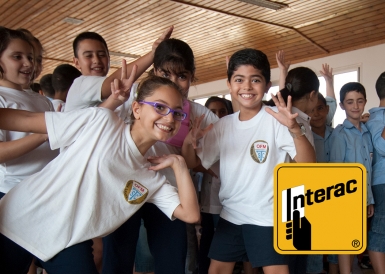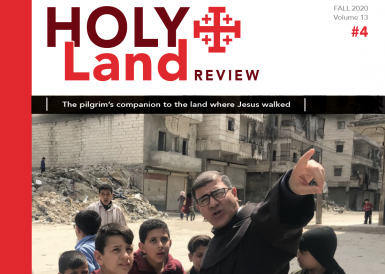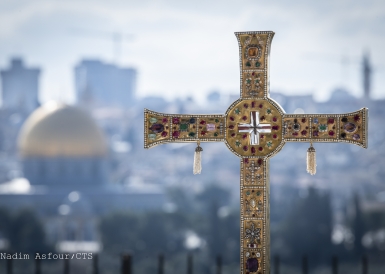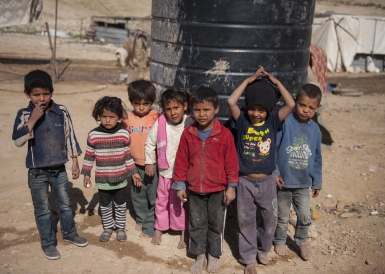
©Chaim Goldberg/Flash90
From Jerusalem, Meir Margalit speaks of the precipice towards which the country is throwing itself. This historian and activist is a respected voice of the opposition to the government and to the majority of public opinion, which refuses to end the war. "Only strong international pressure can save Israel."
- Francesco Pistocchini
June 18, 2025, TerreSainte.net Magazine
An Israeli Jew of Argentine origin, Meir Margalit is a specialist in the Israeli-Palestinian conflict. In the 1970s, he was one of the founders of the settlement of Netzarim in the Gaza Strip and participated in the Yom Kippur War (1973). It was at this point that he radically changed his approach to the Arab-Israeli question.
He was for years a member of the Jerusalem City Council for the left-wing Meretz party, an adviser to various United Nations agencies, and a co-founder of the ICAHD, one of the country's leading human rights organizations: the Israel Committee Against House Demolitions.
An interview published in Italian on June 12 on terrasanta.net
As an insider, how do you assess Israeli society after twenty months of war in Gaza?
This is a difficult question, because everything is changing and nothing is the same as it was before the war began. But new patterns of thought and action have not yet crystallized. I can say that it is a society dominated by fear. A fear that has its historical roots: the Jewish people have suffered persecution for centuries, the Shoah... Fear is written in its skin. Although we are a nuclear power, we have developed this fear over time.
The attack on October 7, 2023, unleashed all the ghosts and anxieties that Israelis had internalized, and they responded. But one of the characteristics of fear is that it affects the ability to think sensibly.
We stopped thinking: on the one hand because of fear, on the other because of characteristics that had been developing in Israel since its founding. I am thinking above all of its militarism.
The combination of fear and militarism has led us to the current situation, in which the people are no longer able to recognize the barbarities they commit with their own hands.
Reuven Rivlin, president of Israel from 2014 to 2021, spoke of a country divided into minority groups: secular Jews; religious Zionists; the haredim (ultra-Orthodox); the Arabs. A fragmented society...
Israeli society is a veritable melting pot of cultures. In relatively quiet times, these ethnic and national groups, these cultures, had developed a form of modus vivendi, thanks to which we could more or less coexist side by side. The war has accentuated the differences between the various groups, and today there is virtually nothing left of this pre-October 7 coexistence.
The groups are now in antagonistic relationships, against each other. For example, relations between the Haredim and the population doing their military service are extremely tense. Ultra-Orthodox Jews do not participate in the army, because they devote themselves to Torah study. Secularists and religious nationalists say that in times of war, everyone must contribute equitably – this has provoked a confrontation.
There is also tension between those who want to continue the war until Hamas is completely eliminated, and the liberal groups who believe that this war makes no sense and must be ended as soon as possible. We are in a tense situation between all these components. Today, there is no common denominator that would make it possible to build a more or less homogeneous society.

And does the internal opposition, made up of liberal groups or left-wing parties that have now almost disappeared, not have the strength to change the situation?
Periods of war favour the far right. Pacifist, liberal, left-wing groups generally disappear. The Israeli left has disappeared from the political map, and the liberals are falling, because their discourse does not correspond to what the people want to hear: absolute victory, destruction. The majority believe that Hamas and Gaza are one and the same, and that, therefore, it is not enough to dismantle Hamas: a way must be found to destroy the entire Gaza Strip.
The Liberals, on the other hand, believe that after 50,000 or 60,000 deaths, we have won the war and that there is no longer any reason to continue fighting: it is time to back down. Israel cannot maintain this pace of war indefinitely. But the majority of the population does not accept this.
So the risk of international isolation for Israel is not perceived as a problem by public opinion?
Not at all. If we get to a point where European countries prevent Israelis from entering, or Israel can no longer participate in Eurovision, or the Maccabi Tel Aviv team is excluded from the European football cups... Maybe people would start to reconsider the situation.
But Israelis can still travel freely to all the beaches of Europe, to Mallorca, even to Antalya in Turkey, without anyone disturbing them. So this isolation, the criticism of the United Nations, does not disturb them. The economy works, and they think they can continue to do business without encountering any obstacles.
The destruction and killing in Gaza has undoubtedly strengthened anti-Israeli sentiments...
Anti-Israel sentiments are not enough. What we need are sanctions, not feelings, criticism, or votes. We need clear sanctions. For example, the trade agreement between Europe and Israel must be cancelled immediately. The Israeli economy must feel that Europe no longer supports the State of Israel. There is an urgent need for Europe to recognise the Palestinian state, for Palestine to become a member of the UN, and for the UN to come to the aid of the Palestinian state, because a neighbouring state – Israel – is in the process of violating international law.
Hatred of Palestinians has only increased, reinforcing Israel's insecurity.
Of course. But the Israelis do not understand this, paralyzed by this fear I was talking about at the beginning. A fear that causes damage not only to the Palestinians, but also to ourselves. It is obvious that for every Palestinian we kill, there will be at least ten who will want to avenge the death of their loved ones. Meanwhile, for Palestinians in the West Bank, Hamas militants are becoming role models. They are now heroes, idols of the national struggle.
We may end up putting an end to the confrontation in Gaza, but at the same time we encourage Hamas to take root in the West Bank. It is a vicious circle, and Israel does not understand it. Or rather: some people understand it, but don't care about it. For example, the nationalist religious circles of Itamar Ben-Gvir and Bezalel Smotrich say: "All right, the West Bank must become like Gaza, because it will give us a pretext to do what we are doing in Gaza, and then we can annex the West Bank, destroy forever the Palestinian Authority and the two-state plan."
The majority does not understand that we are digging our own grave. But those who understand this are delighted with what is happening in the West Bank. People for whom: the more enemies, the better.
More and more Israelis are deciding to leave the country: in 2024, more than 80,000 have emigrated, mainly to the United States and Europe. What do you think of this phenomenon?
I perfectly understand those who say that we can no longer live in this country. How can one want to have children, when the military high commands say that this war will last indefinitely? The most natural reaction for parents is to say, "No, I won't send my son to fight in the West Bank or Gaza." So I understand their motivations.
On the other hand, what worries me is that these people who leave the country have more or less the same profile as me, and could vote for the pacifist, liberal parties... I saw a recent study that in recent years we have lost up to four seats in the Knesset (out of the 120 in the Israeli parliament), precisely because of voters who have left the country.
In the medium term, this means that it is the citizens who contribute the most to the Israeli economy who leave. Only the haredim (ultra-Orthodox) and the Arabs will remain, but they will not be enough to make the country work economically. In other words, the country will collapse. And maybe it's better that way: let it collapse. Because he can't go on like this. After a collapse, there may be the conditions to rebuild something on a more ethical basis, to build a more sensible country. But for that to happen, it will take a general collapse that will cause people to reconsider things.
Criticism of the Israeli government and military is often dismissed as anti-Semitism. We Europeans – even those who love Israel – are told that we have an anti-Semitic attitude. What is your opinion on this? Is it not possible to formulate a political critique?
It's a huge shame. Israel uses this argument to silence all those who have every right to criticize it. It's a political manipulation, a dirty thing, of the lowest possible level. When Israel is unable to provide a logical answer, it accuses the other of anti-Semitism. I ask my Franciscan friends, those of the Holy Land, not to be intimidated, not to be afraid to speak their minds, because we need courageous people, all over the world, to say things clearly.
I would like to dedicate a thought to a Franciscan friar, Brother Giorgio Vigna, who was commissioner of the Holy Land in Turin, and who, during his mission in the Holy Land, worked in the Commission for Justice and Peace.
Since his death in 2022, he is greatly missed, for his holiness and his commitment to the struggle for peace and justice.
What conditions must be met in order to be able to imagine again, and relaunch in the public debate, the two-state solution or that of a binational state living in peace?
We need a lot of international pressure. I am hopeful about the UN initiative led by France and Saudi Arabia (which should have taken place on June 17, 2025 – editor's note). I hope it’s like a snowball that turns into an avalanche of international pressure. I hope that France will not back down. My friends tell me I'm naïve, but I think we need Trump and the United States to bang their fists on the table and say, "Enough is enough! Enough is enough, we can no longer continue to support a country that endangers international peace. If the U.S. decides to stop arms shipments and political support, all of this will undoubtedly stop.
Another partner that disappointed me was Saudi Arabia. Saudi Arabia and the Arab League could, not directly, but through the United States, lead to a ceasefire, the withdrawal of Israeli forces within their borders, and allow the beginning of a political solution – whether two-state or a bi-national state. But a new phase must begin. Today, it is not in our hands. We, opponents from within, cannot do much more than what we are already doing: demonstrate, protest, shout... But the keys to resolving the conflict are in the hands of the international community.
We are more than ever in your hands.
A great deal of support for Israel has come, during all these months, from several European countries...
I would like to say this, without offending anyone: there are countries that support Israel no matter what it does. They do it out of love for Israel. I am talking first of Germany, Austria, but not only... and for obvious historical reasons. But I think that if any country today is anti-Semitic, it is Germany. And it is precisely because it supports Israel. Paradoxically, supporting Israel means supporting a policy that is leading us straight into the abyss.
The one who truly loves Israel is the one who criticizes it and imposes sanctions. And not the one who says "Amen" to every folly Israel is committing. The world must understand that all those who have affection for Israel must, for the sake of Israel, begin to exert pressure, because without your help, we will not be able to get out of this.



